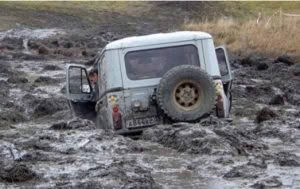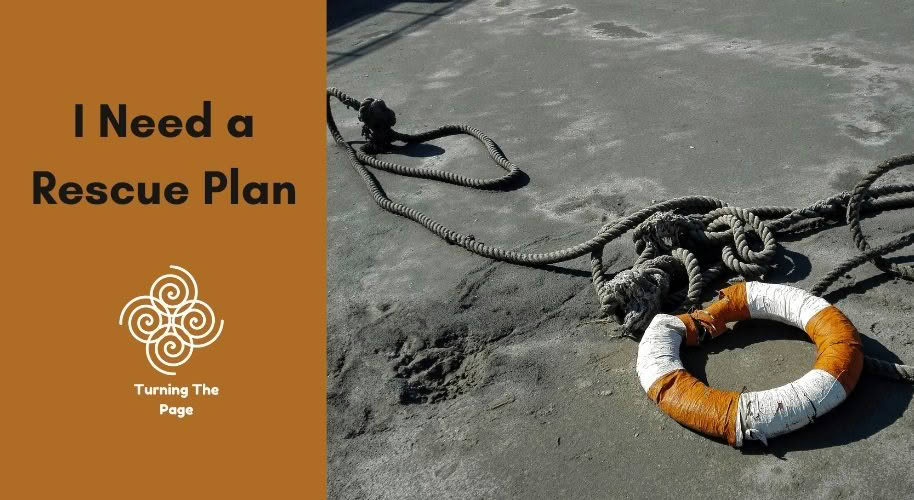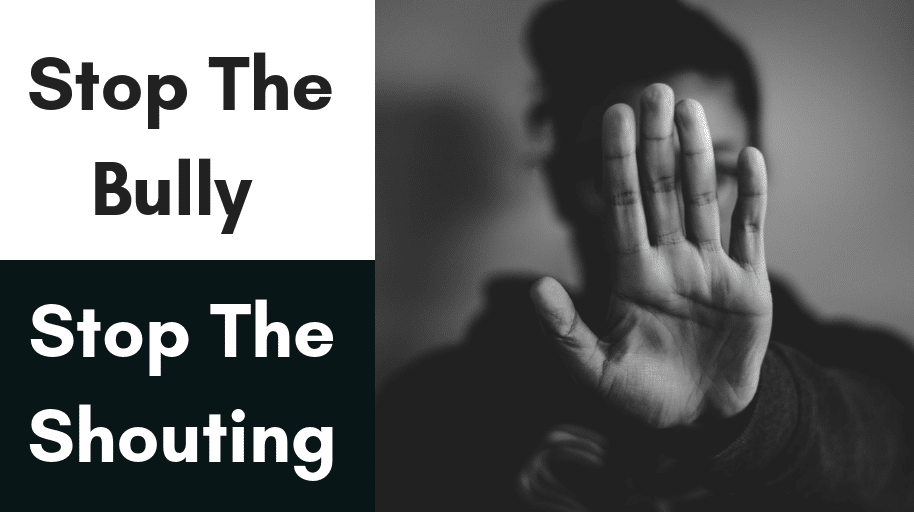I had been driving my small truck in the countryside and decided to do a u-turn. I crossed over the road and on to the soil and I got stuck in the mud. I hadn’t realised that it was so wet and mucky.
I instantly stopped, as I knew that if I kept trying to get out, I would just dig myself in further.

I needed a plan. A rescue plan.
I looked at the mess and decided that I needed someone to come and rescue me. It was a quiet road, but I prayed and planned.
I got out a large rope I carry and hooked it up to the truck and waited for someone to come along.
People passed me by, I waved, they drove on. One of them came back 🙂. It was a small car, but it had a towbar and so I hooked on the rope and in two minutes I was free from the mud.
I had a rescue plan, and someone helped me with it.
We like to be self-reliant, but we also need others around us to help us when we can’t help ourselves.
Interestingly, I had actually pulled someone out of the mud a few weeks earlier. They had got stuck in the wet sand just outside my home.
I don’t want to be considered ‘A rescuer’, but at times, we all need someone else to come alongside of us and create a rescue plan with us.
People like me need people like you,
and people like you need people like me. Mark Wilde
Why rescuing gets a bad rap
Next week I’m going back to that same place and get myself stuck again.
I think I will do it the following week too. Then that same lady will drive along in her fancy white sports car and pull me out.
I have a sense of entitlement in me that others should rescue me out of the predicaments I get myself into.
When others don’t help, I grow a P.L.O.M. (Poor Little Old Me) in my mouth.
Seriously, I won’t be doing this.
People get sick and tired of rescuing people who make no changes in their lives to avoid the need of rescue.
But there are some people who seem quite ok with rescuing others or at least helping others to avoid the painful realities of life and problem solve themselves out of them as best they can.
They walk on eggshells around them. They never challenge ‘the elephant in the room’.
Bad habits, addictions, and behaviour patterns are not problem solved and so the rescuing and co-dependancy continues.
There’s a deep hole in the sidewalk.
“Chapter One of My Life. I walk down the street. There’s a deep hole in the sidewalk. I fall in.
I am lost. I am helpless. It isn’t my fault. It still takes forever to find a way out.
Chapter Two. I walk down the same street. There’s a deep hole in the sidewalk. I pretend I don’t see it. I fall in again. I can’t believe I’m in the same place! But it isn’t my fault. And it still takes a long time to get out.
Chapter Three. I walk down the same street. There’s a deep hole in the sidewalk. I see it there. I still fall in. It’s a habit! My eyes are open. I know where I am. It is my fault. I get out immediately.
Chapter Four. I walk down the same street. There’s a deep hole in the sidewalk. I walk around it.
Chapter Five. I walk down a different street.”
― There’s a Hole in My Sidewalk: The Romance of Self-Discovery
Unless there is a plan to help people not to walk down the same old street, then a rescue plan becomes inevitable.
We live in a nest
One of the familiar illustrations I use when describing the support networks we need is that of a nest.
We all have a nest. People who support us and we support them. It might be friends, family, work colleagues, neighbours.
It also has to include random strangers who stop their car and offer to help us when we are stuck in the mud.
I have found that the most important people in my life are those that will not rescue me, but will instead help me create a rescue plan for those times I need one.
They typically they don’t try to Fix, Advise, Save, or Set me Straight (F.A.S.S.). Instead, there is a level of pragmatism. A grounded connection to the problem at hand.
Rescue plan
I need a plan
I need some help
‘I can’t get out’
I scream and shout
Internal words
Batter my soul
Loser, stupid
Weary battle brain toll
I go to prayer
What else can I do
Send me some help
Get me out of this goo
‘My God provide’
On bended knees I pray
Send me some help
My feet in miry clay
Mostly in life
I’m self capable
But there are times
When I’m just not able
I raise my hand
I hope someone will see
Help me from this entanglement
I long to be free
I will do what I can
Can you do, what you can do
Some other day
It may well be you
A community is formed
Around my dark place
Each doing what they can do
In help from others, there is no disgrace
After I’m out
We will work out a plan
Never to ever venture
Into that quicksand again
People like me
Are people like you
At times we find ourselves
Buried in goo
Hand me a spade
Throw me a rope
Let’s make a plan
Give me some hope
Questions?
Comments?
Email me 🙂📨
barry@turningthepage.co.nz
Give a little gift to keep the pages turning
Quotes to consider
- Every ‘rescuer’ needs to know that sometimes people will need to feel worse before they can feel better. D. Riddell
- Only those willing to stand close enough to listen will ever hear those closest to the problem. Jim Wallis
- Compassion for yourself is where you start when things are tough, not where you stop. Rick Hanson
- It is usually most helpful to ask questions that are more about the person than about the problem. Parker J. Palmer
- Wealthy Christians talk about the poor but have no friends who are poor. So they merely speculate on the reasons for their condition, often placing the blame on the poor themselves.”
― God’s Politics: Why the Right Gets It Wrong and the Left Doesn’t Get It - ‘Whom do we listen to and whom do we trust? Trust is essential to listening. Why do we believe the myth that the poor people don’t know anything and can’t be trusted? Where do you really find more truth about society – at the top or the bottom? Are the best solutions conceived in the corridors of power or in the neighbour hoods? Only those willing to stand close enough to listen will ever hear those closest to the problem. Jim Wallis
Questions to answer
- When have you needed a ‘rescue plan’?
- The tension between self-reliance and the need for others to help. How easy is it for you to ask for help and support?
- We don’t want to be considered as ‘rescuers’, but what happens inside you when you see someone in need?
Formation exercise
- Think of the times when you have needed help and support from others. What did they offer? What was it like to need help? How have you passed this gift, as such, on to others?
Further reading
7 Steps to Help Those with P.L.O.M’s (Poor Little Old Me) in the Mouth
Barry Pearman
Photo by OMID on Unsplash





